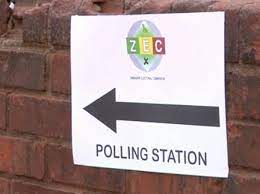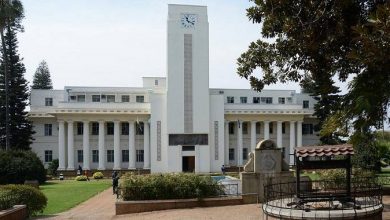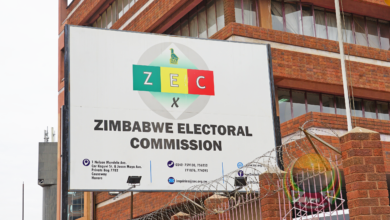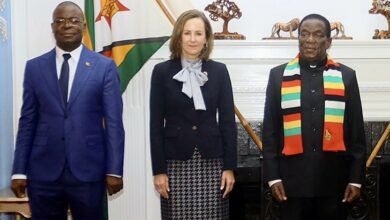Sixteen political parties for by-elections: ‘Zimbabweans spoiled for choice’

Zimbabwe will on 26 March hold by-elections to fill in-in 28 parliamentary and over 100 local authority seats that fell vacant over the past two years as a result of recalls, deaths and other related factors.
Political parties to lock horns in the mini polls are the ruling ZANU-PF and 15 opposition parties – All People’s Party (APP), Citizens Coalition for Change, Democratic Opposition Party (DOP), Federation of African State (FAS), Free Zimbabwe Congress (FREEZIM), Labour, Economists and African Democrats (LEAD), MA’ AT Zimbabwe, Movement for Democratic Change Alliance (MDC-A), National Patriotic Front (NPF), Patriotic Zimbabweans (PZ), Republican Party of Zimbabwe (RPZ), United Democratic Alliance (UDA), United Zimbabwe Alliance (UZA), ZAPU and Zimbabwe Labour Party (ZLP).
“As far as I am concerned, I think our constitution allows people to associate with any political party of their choice,” said Michael Mdladla Ndiweni, a political analyst.
“This shows that the space is open. What this means is that people are spoiled for choice. Let people choose what they want.”
He explained further: “In terms of benefits, I think citizens are now spoiled for choice in terms of the ideas that they want or the best manifestos that resonate with their aspirations.”
Ndiweni who dismissed the notion that having many political parties divides votes said lack of confidence in the MDC and ZANU-PF has led to the emergence of other political parties.
“Even in the shops, we have bread from Bakers Inn, bread from Lobels, bread from Proton. So people tend to choose which bread that they like from the basket, therefore people can choose which political party they want to support,” he added.
Fortune Mlalazi, a public administrator, said having many political contenders in an election is a good thing.
“I think it is a good thing despite the challenges that we have,” Mlalazi told CITE.
“You can’t stop people from exercising their constitutional rights. We would have loved to have fewer political parties but in short, political parties must be assisted in their numbers to participate.”
He added: “If people want Chamisa, they will still vote for Chamisa, if they want ZANU-PF, they will still vote for ZANU-PF but what I would encourage people looking at the bigger picture is to try and close the gap and build understanding so as to achieve objectives such as ending the ZANU-PF rule.”
Linda Mpofu of Gwanda said while the number of contestants could mean the country is democratic, that could be a strategy to divide votes in favour of ZANU-PF.
“I think for those (political parties) with good intentions it is good but for those without it’s very bad as they are disturbing the outcome which is the will of the people,” she said.
“As long as there are good intentions, having more parties to contest is good as it gives people a wider choice, which is what democracy is all about.
Rejoice Ngwenya, another political analyst said: “Constitutional democracy is good because it promotes political competition and free association. However, the proficiency with which Zimbabweans form parties on ‘electoral eve’ is a bad sign that such ‘leaders’ do not take voters seriously. It is an insult to citizens.”
He also said ZANU-PF stands to benefit from many political parties contesting the polls.
“Of course, ZANU-PF benefits from this chaotic political greed by dividing votes,” he decried.
“ZEC needs to, or rather, the law has to set minimum standards for participation so we do not waste taxpayers’ money by entertaining Mickey Mouse parties. A proliferation of fly by night briefcase parties means nothing for political space and democracy in Zimbabwe. ZANU-PF knows its worthy competitors so they merely block their campaigns. This multitude of lightweight apparitions masquerading as parties is used by State propaganda to portray Zimbabwe’s electoral environment as democratic. In other words, these parties are what I call pawns of deceit and self-delusion.”
He added: “If people were really serious about change, they would come together, stop being selfish and work as a collective.





